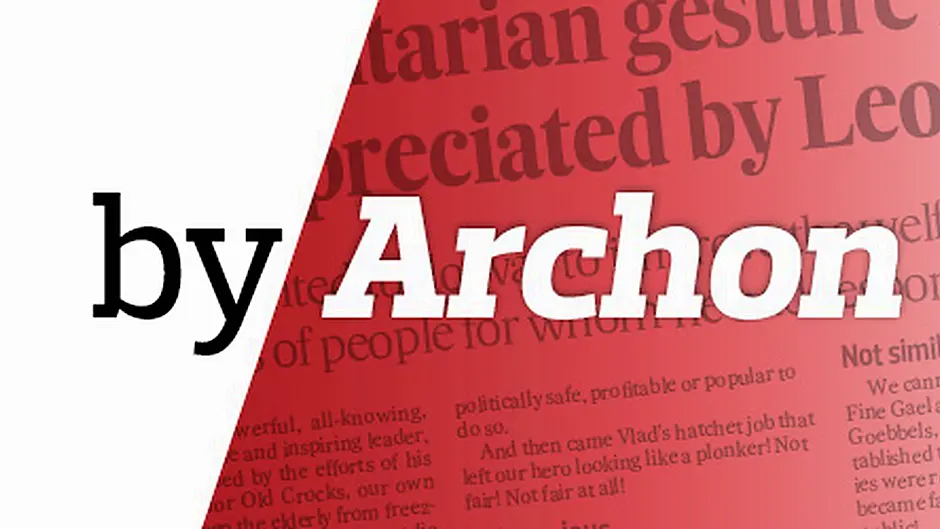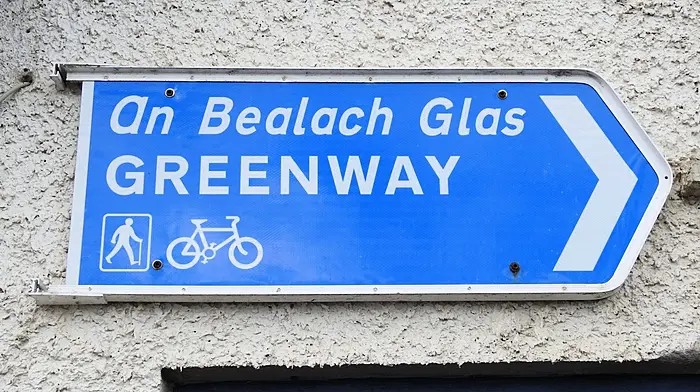They wonder why its principle of ‘open and honest regulatory dialogue' is not being applied in this case
IN the old days, membership of the Cork Harbour Commissioners consisted of the Rt Hon. Lord Mayor, the High Sheriff, two parliamentary representatives, the chairman of the Queenstown Urban District Council, five representatives from the Corporation and 25 from the Mercantile Body (the merchant class). That was the situation for 183 years; and then came a new broom.
On March 3rd, 1997, a semi-state company, the Port of Cork Company, replaced the Harbour Commissioners following the implementation of the 1996 Harbours Act. This new body now boasts of achieving reasonable commercial success, having paid the Exchequer in 2017 more than half a million euros in profits.
Importantly, it is also a significant contributor to the maritime commercial life of Cork, Cobh and Bantry. The Bantry Bay Port Company was established in 2014 and is a subsidiary of the Cork company.
And, as is usual for State companies that enjoy government approval, the Port of Cork Company promotes several ‘community’ projects. These include the ‘Passage West-Monkstown River Users Association, the Millennium Park Gardens at Tivoli where it provides extra parking spaces and the ‘user-friendly’ walks at the ‘Sirius’ Garden in Glenbrook-Passage West.
Meet the people
Although not spectacular, these projects tick the box for compatibility with the Port’s Corporate Social Responsibility Policy. This consists of a benevolent aspiration to ‘enhance Cork’s environmental and social performance through proactive engagement with key stakeholders.’
Importantly, the Port of Cork Company’s mission statement emphasises the fact that its objectives are to be achieved ‘through a co-ordinated management system based on good corporate governance that engages with local communities in the wider Cork Harbour Region.’ An impressive and worthy objective, indeed!
There’s more: ‘The purpose will be to advance Port of Cork’s Corporate Social Responsibility principles through open and honest regulatory dialogue … which will prioritise social, environmental and other issues in the wider port community.’
‘Dialogue’ that takes-in important matters! Wow! That’s really good!
Well done, Port of Cork. We’re impressed!
But, hang-on! Stall the digger! What about that bit of a not too significant argy-bargy in Cobh between the Port’s representatives and concerned citizens at which ‘open and honest regulatory dialogue’ was … well … sadly not given the importance that the Port of Cork Company had assigned to it.
At the heart of the matter was the closure to the public of the quayside and part of an adjoining walkway at the Deepwater Quay while a passenger cruise liner was docking. Known as the Five Foot Way, the walkway is one of the most scenic urban routes in Ireland and immensely enjoyed by locals and visitors alike.
Access not allowed
As far as the Port of Cork Company is concerned, it is entitled to use the section of the quay that it claims is theirs in whatever way it wants to because there is no public right of way and none has ever existed. Consequently, the company does not allow public access to a part of the quay when ships are berthing and leaving.
The Deepwater Quay is closed for about 30 minutes and during this time – when free of curious spectators – visiting liner passengers go onboard the excursion buses. Locals and protesters are quick to point out that they are in no way campaigning against passengers disembarking in Cobh. Indeed, they very much welcome cruise liner tourists to their historic town.
What’s getting up the town’s collective nostril is the closing-off of a traditional right of way and the assertion that walking along a particular section of the quay is at the discretion of the Port of Cork Company.
The company, for its part, says that it blocks access to the public at certain times for strict reasons of safety (presumably in the event of mooring ropes snapping and decapitating passers-by), insisting that it has the legal authority to close the quay at any time of its choosing and, if necessary, for significantly longer periods of time.
Quay for sale?
Here’s what the company said: ‘Despite erroneous claims to the contrary, Port of Cork Company is the freehold owner of Deepwater Quay and no public right of way exists over the quay.’ Nothing, in fairness, could be more definitive, or explicit, than that!
In response, locals argue that the Port of Cork does not own all the land in question and that a right of way has existed in practice through continuous usage for many decades. They interpret the closure of the right of way as part of a strategy for ‘further developments as yet unspecified.’
Fuelling speculation is the Port’s stated intention to invite ‘expressions of interest’ from private companies to develop a second cruise terminal further along the town. There also is some surmising about a private company taking over the current terminal facility at the Deepwater Quay.
Complicating matters even more is the reluctance of the Port of Cork to talk to the protesting group which is called ‘Save Cobh’s Right of Way.’ In a recent pamphlet, the group claimed that the port company indefinitely deferred a planned meeting after an exploratory meeting on March 29th and that, since then, there has been no effort on the company’s part to seek a resolution to the controversy.
The pamphlet makes the interesting allegation that Cobh Municipal Council sought an urgent meeting at the beginning of May to discuss the right of way issue, but the Port of Cork Company failed to respond.
Trouble ahead?
All of which reinforces the impression that the port company at the present time is not interested in negotiation, mediation or arbitration – the basic ingredients for settling a dispute.
And then there’s the Brexit factor. Dublin Port has informed Transport Minister Ross that it is about to begin construction work so that Dublin will be able to handle large volumes of container traffic in time for the UK’s exit from the EU.
However, the downside to such a course of action will be a significant reduction in the number of cruise ships visiting Dublin over the next two years. From 160 liner visits this year, the intake will be just 80 by 2021.
The Port of Cork Company, however, has not been fazed by the proposed Dublin blow to the liner trade and is confident it can pick up any business lost to Dublin.
Indeed it plans to ‘grow’ cruise visits from just over 100 a year to 150-plus per year. But, say the realists, that’s a pie in the sky notion, because – without Dublin as a magnet – cruise liners will choose more attractive European routes. They’ll bypass Cork and Bantry.
As for Cobh, it may well see Brexit shrivel the cruise liner trade which, to judge by the unpleasant wrangles currently being generated, might not necessarily be a bad thing!








